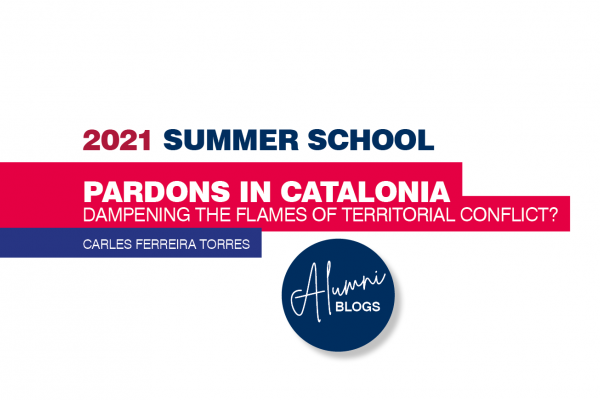The territorial conflict in the Spanish region of Catalonia reached its peak in October 2017. After an illegal referendum and a failed declaration of independence by the Catalan parliament, the Spanish senate provisionally imposed direct rule from Madrid. Also, the judiciary instructed the arrest of the secessionist government and some high-profile activists.
As a result, Prime Minister Carles Puigdemont (JxC) and part of the Catalan cabinet fled Spain to avoid the state’s repression. Since then, they live freely in different European countries. However, other politicians, including the vice-president Junqueras (ERC), went into prison and faced up to 13 years in jail for sedition, disobedience, and misappropriation of public funds. These legal cases have been at the forefront of the news for the past four years – although the territorial tension has neither increased nor disappeared during this period.
In an attempt to distance himself from his predecessor, the Spanish premier Pedro Sánchez has recently approved controversial pardons of the nine pro-independence leaders who were jailed over their role in the 2017 events – not including those who live in exile. Whilst 61% of Catalans agree with this move, only 30% of Spaniards share this opinion, polls show. Thousands of people, including the leaders of the Spanish right-wing parties, rallied in Madrid some days ago to protest against Sánchez’ decision. Three main elements explain this a priori anti-rational decision by prime minister Sánchez.
Firstly, the major Catalan and Basque pro-independence parties – particularly ERC, in power in Catalonia – sustain his parliamentary majority in parliament. Therefore, the socialist-led government must compromise over territorial issues to keep power until the next general elections, to be held in 2023. Secondly, different NGO and international organisations such as the Council of Europe, Amnesty International or the UN Working Group on Arbitrary Detention have repeatedly demanded Spain release the prisoners. These pressures and the fear of a major setback by European and international courts might have played a role in Sánchez’ decision. Finally, the Spanish government’s policy vision on territory aims at reducing the level of political tension within an ambiguous framework of “concord” and unity in diversity.
Conversely, the pro-independence parties perceive this movement as necessary but not sufficient, and still demand full amnesty – which would include pardons for Puigdemont and his former ministers in exile – and the right of self-determination. The Spanish government vehemently rejects this solution and would only be favour a renewed autonomist arrangement for Catalonia. For now, both parties agree to disagree, and they will resume talks in a bilateral “dialogue table” that will meet periodically. We should not expect an agreement in the short to medium term – it is unlikely even in the long run – due to the clashing visions of Catalonia’s place in Spain, but the talks will grant some stability to both governments in the meantime.
Therefore, the pardons will dampen the flames of Catalan secessionism in the short term, but a resolution of the conflict is rather unlikely. If both parties do not agree on a structural solution, we should not reject a scenario of further escalation by either side, or by both. Within the Catalan camp, Puigdemont’s party (JxC) deeply distrusts the dialogue process. It could push the senior partner of the Catalan cabinet (ERC) to take a hard-line approach if the talks do not render any meaningful result. Conversely, if the conservatives (PP) win the next Spanish elections, they would need the support of the far-right (Vox), which threatens pro-independence parties with more jail and legal bans. To conclude, the current situation could be summarised as calm for now, but significant uncertainty regarding the foreseeable future.
Carles Ferreira Torres is a PhD candidate at the University of Kent and an alumnus of the 2021 Centre on Constitutional Change Summer School. His research focuses on nationalism, secessionism and comparative party politics.

